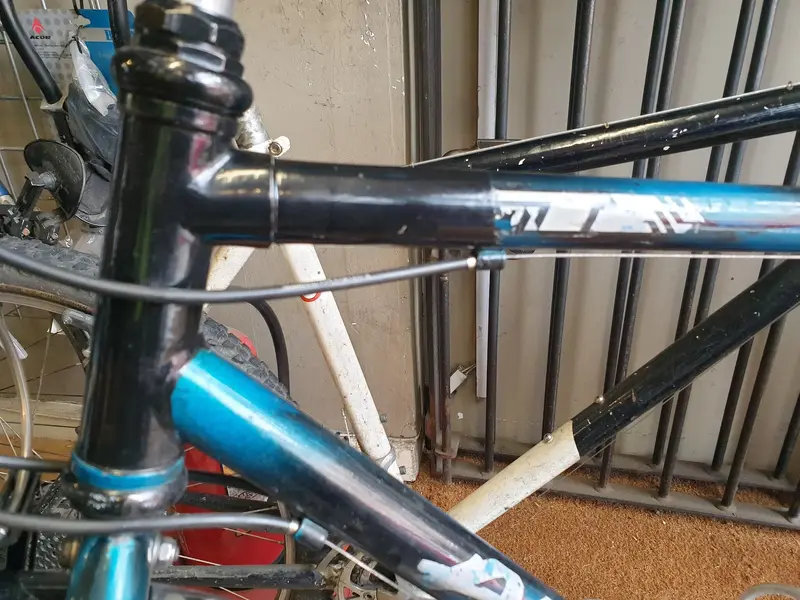Frankenorange
Orange 🍊 Fan
The only frame i have broken was a gas pipe something after a very big crash. I ran into a roller blader who suddenly veered onto our side of a cycle path that myself and a couple of mates were going absolutely flat out on, like idiot teenagers do.
Mate in front managed to avoid him but i didnt. Broke the guys shoulder blade, compressed my spine where it meets the pelvis and had a mild case of concussion. Also learnt that day to never wear an expandable metal watch strap when cycling as they open your wrist up pretty good.
Both mudgaurds and the rear wheel were right offs as some cartwheeling was involved, but i thought the frame and forks were ok. Not long after i started getting some wild shakes at the front end on downhills. That is when i found a crack that went round a good part of the headtube, about halfway between the lugs.
Mate in front managed to avoid him but i didnt. Broke the guys shoulder blade, compressed my spine where it meets the pelvis and had a mild case of concussion. Also learnt that day to never wear an expandable metal watch strap when cycling as they open your wrist up pretty good.
Both mudgaurds and the rear wheel were right offs as some cartwheeling was involved, but i thought the frame and forks were ok. Not long after i started getting some wild shakes at the front end on downhills. That is when i found a crack that went round a good part of the headtube, about halfway between the lugs.
